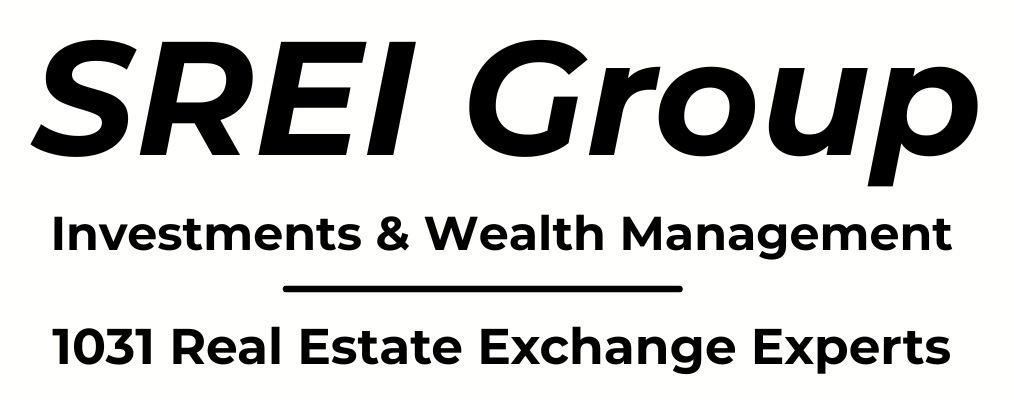
- 401(k) Loan
- 401(k) Plan
- 403(b) Plan
- 1031 Exchange
- 1035 Exchange
- Account Balance
- Accredited Investor
- Adjustable-Rate Mortgage (ARM)
- Adjusted Gross Income (AGI)
- After-Tax Return
- Aggressive Growth Fund
- Alpha
- Alternative Minimum Tax (AMT)
- Alternative Security Investment
- Annual Percentage Rate (APR)
- Annual Report
- Annuity
- Appraisal
- Asset
- Asset Allocation
- Asset Class
- Audit
- Automatic Reinvestment
- Balanced Mutual Fund
- Bear Market
- Beneficiary
- Beta
- Blue Chip Stock
- Bond
- Book Value
- Boot
- Bull Market
- Buy-and-Hold
- Buy-Sell Agreement
- Capital Gain or Loss
- Cash Alternatives
- Cash Surrender Value
- Certificate of Deposit (CD)
- Charitable Lead Trust
- Charitable Remainder Trust
- Claim
- COBRA
- Coinsurance or Co-Payment
- Collateralized Loan Obligation
- Commercial Paper
- Common Stock
- Community Property
- Compound Interest
- Consumer Price Index (CPI)
- Convertible Term Insurance
- Corporate Bond
- Corporation
- Coverdell Education Savings Account (Coverdell ESA)
- Credit Score
- Debt
- Debt-to-Equity Ratio
- Deduction
- Deed
- Deferred Annuity
- Defined Benefit Plan
- Defined Contribution Plan
- Deflation
- Delaware Statutory Trust
- Dependent
- Direct Rollover
- Disability Income Insurance
- Diversification
- Diversify
- Dividend
- Dollar-Cost Averaging
- Dow Jones Industrial Average (DJIA)
- Early Withdrawal
- Employee Retirement Income Security Act (ERISA)
- Employee Stock Ownership Plan (ESOP)
- Employer-Sponsored Retirement Plan
- Equity
- Estate Management
- Estate Tax
- Exchange-Traded Funds (ETFs)
- ExchangeRight Real Estate
- Executive Bonus Plan
- Executor
- Federal Income Tax Bracket
- Federal Reserve System (The Fed)
- Financial Aid
- Financial Industry Regulatory Authority (FINRA)
- Financial Statement
- First-to-Die Life Insurance
- Fixed Annuity
- Fixed-Rate Mortgage
- Foreclosure
- Fractional Ownership
- Front-End Load
- Full-cycle
- Fundamental Analysis
- Gift
- Gift Tax
- Gross Monthly Income
- Group Life Insurance
- Health Savings Account (HSA)
- Home Equity
- Income
- Index
- Individual Retirement Account (IRA)
- Inflation
- Initial Public Offering (IPO)
- Interest Rate
- Internal Revenue Code
- Intestate
- Investment Objective
- Irrevocable Trust
- Joint Tenancy
- Jointly Held Property
- Keogh Plan
- Key Employee
- Key Person Insurance
- Life Insurance
- like-kind
- Liquidity
- Living Trust
- Living Will
- Long-Term-Care Insurance
- Lump-Sum Distribution
- Management Fee
- Marital Deduction
- Market Risk
- Market Timing
- Maturity
- Medicaid
- Medicare
- Money Market Fund
- Municipal Bond
- Municipal Bond Fund
- Mutual Fund
- National Association of Securities Dealers Automated Quotations (NASDAQ)
- Net Asset Value
- Net Income
- Net Worth
- New York Stock Exchange (NYSE)
- Non-contributory Retirement Plan
- Non-qualified Plan
- Non-Recourse
- Old-Age, Survivors, and Disability Insurance (OASDI)
- Opportunity Zone
- Partnership
- Passive ownership
- Permanent Life Insurance
- Policy Loan
- Policy Rider
- Policyholder
- Policyholder
- Portfolio
- Power of Attorney
- Preferred Stock
- Prenuptial Agreement
- Price/Earnings Ratio (P/E Ratio)
- Prime Interest Rate
- Principal
- Probate
- Profit-Sharing Plan
- Property
- Prospectus
- Qualified Retirement Plan
- Rate of Return
- Real Estate Investment Trust (REIT)
- Recourse Loan
- Redemption
- Replacement property
- Required Minimum Distribution (RMD)
- Revenue
- Revocable Trust
- Risk
- Risk Tolerance
- Rollover
- Roth IRA
- Roth IRA Conversion
- Savings Incentive Match Plan for Employees (SIMPLE)
- Securities and Exchange Commission (SEC)
- Securitized Real Estate
- Self-Directed IRA
- Share
- Split-Dollar Life Insurance
- Split-Dollar Plan
- Sponsor
- Spousal IRA
- Standard & Poor’s 500 Index (S&P 500)
- Stock
- Stock Certificate
- Stock Purchase Plan
- Stock Split
- Tax Credit
- Tax Deduction
- Tax-deferral
- Tax Deferred
- Tax-Exempt Bonds
- Taxable Income
- Technical Analysis
- Tenancy in Common
- Term Insurance
- Testamentary Trust
- Time Horizon
- Title
- Total Return
- Treasuries
- Trust
- Trustee
- Trustee-to-Trustee Transfer
- Uniform Gift to Minors Act (UGMA)
- Universal Life Insurance
- Unlimited Marital Deduction
- UPREIT
- Variable Interest Rate
- Variable Universal Life Insurance
- Volatility
- Whole Life Insurance
- Will
- Withholding
- Yield
- Zero-Coupon Bond
In a 1031 exchange, like-kind refers to the requirement that the property being sold (relinquished property) and the property being acquired (replacement property) must be of the same nature or character, even if they differ in grade or quality. For real estate, this generally means both properties must be held for investment or business purposes, not for personal use.
Key points about like-kind in a 1031 exchange:
- Broad interpretation: Most types of real estate qualify as like-kind, regardless of specific use. For example, you can exchange a rental property for a commercial building, vacant land for an apartment complex, or an office building for a retail center.
- Real property only: Since 2017, only real estate qualifies for 1031 exchanges (personal property like equipment or vehicles no longer qualifies).
- Held for investment or business: Both properties must be used for business or investment purposes. A primary residence or property held primarily for sale (e.g., a flip) typically doesn’t qualify.
- Location: The properties must be in the United States to be considered like-kind.
Always consult a tax professional or qualified intermediary to ensure compliance with IRS rules.
